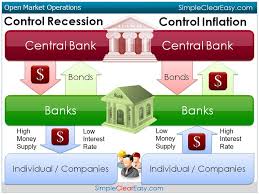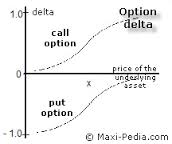Leverage in terms of finance is the process of using borrowed capital for an investment so that the expected profits made are greater than the interest payable. Using leverage does not guarantee success as highly leveraged positions can cause a company to suffer heavy loss. Leverage is a very common term for both investors and companies. Companies can use two types of leverage: operating leverage and financial leverage. A firm that operates with high operating and financial leverage makes its investment risky. A company or investor can reduce risk by deleveraging their investment to mitigate the risk of loss.
Companies usually overuse their leverage and such companies are called over-leveraged companies. Over-leveraged companies have excessive interest payments and hence can run into problem. Hence need to deleverage to make sure they don’t get bankrupt. Deleverage can be thought to be the process of reducing a company’s financial leverage. The best way for a company to deleverage is to immediately pay off any existing debt present on its balance sheet. If a company is unable to do pay off the debt on time the company will be in significant risk of defaulting.
From a practical perspective, however, deleveraging isn’t quite so pretty. Companies not only have to pay off the debt on their balance sheet but have to let go of employees, closing plants, slashing research and development budgets and sell assets for balancing leverage of the company as they need cash to pay off their legal obligations. When investors get the feeling that a company is over-leveraged but is unable to deleverage, the value of the company plummets and can force company to sell its assets at lower prices or loss.
Over-leveraged companies can cause the lenders to suffer a huge loss.When a company is unable to deleverage on time it can cause a global crisis as caused by Lehman Brothers who were over-leveraged.
The standard leverage for a company varies with the industry as per their requirements. Airlines require high operating and financial leverage while other businesses might not require them.A long term though should be given about the company’s future and position before and after leverage.The situation might get complicated very fast so one should look at the chain reaction aspect as well.The most important thing is that you should leverage as it helps the company to grow but you should know when to stop to prevent being over-leveraged.
Click here for government certification in Accounting, Banking & Finance





14 Comments. Leave new
Great article!
Well articulated
very well explained!
well written article!
Hey it’s really nice article and it’s very nice topic and thank you to make us understand such a good topic and I really like the way you explain the facts because your languages quite simple so that there is no technical jargon for those who are not from commerce and economics background
Informative!
good
Well written!
Good work
Nice efforts, Dipesh!
Well Wriitten 😀
The salient features have been highlighted.
Great efforts 🙂
Well described.